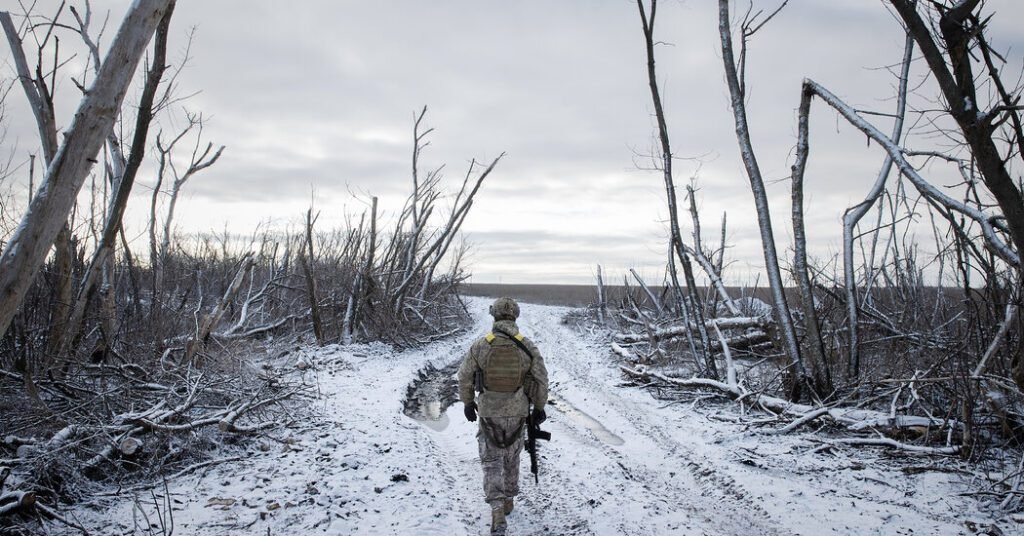The war in Ukraine has “quietly eroded” the power of President Vladimir V. Putin of Russia, CIA Director William J. Burns, in an essay published Tuesday.
While Mr. Putin’s power was unlikely to weaken soon, Mr. Burns wrote in Foreign Affairs, resentment had “gnawed away at the Russian leadership and the Russian people,” allowing the CIA to recruit more spies.
The agency has made a series of videos aimed at recruiting Russian officials. The latest, released last week, encourages Russians to securely provide information to the CIA using a secure dark web browser. The latest video appeals to their anger over corruption in the Russian government.
While the US government won’t say how many spies have been recruited with the videos, officials said the agency would not continue to push them on Telegram and YouTube if they were not effective. Mr. Burns echoed this sentiment in his article.
“This undercurrent of discontent creates a unique recruiting opportunity for the CIA,” he wrote. “We’re not letting it go to waste.”
Part of Mr. Putin’s weakness stems from his handling of a mutiny last year by members of Russia’s most powerful mercenary group. He appeared “distracted and indecisive” in the face of the mutiny led by Yevgeny Prigozhin, the leader of the Wagner mercenary group, Mr Burns wrote.
Mr Burns wrote that Mr Putin had “finally settled his score with Prigozhin”, a reference to the mercenary leader’s death in a suspected plane crash. Still, Mr. Prigozhin’s criticism of the Russian leadership in front of the Russian people “will not go away anytime soon,” Mr. Burns wrote.
“For many in the Russian elite, the question was not so much whether the emperor had no clothes but why he took so long to dress,” Mr Burns said.
Russia has rebuilt its military industrial production, but its economy has been deeply hurt by the war, he said. And in the long run, Russia is “sealing its fate” to be a vassal of China, dependent on Beijing for trade and technology.
Ukraine faces challenges in the war, but has achieved dramatic results. Russia’s efforts to modernize its military have “fallen on deaf ears” and 315,000 Russians have been killed or wounded, Mr Burns wrote.
Ukraine has also suffered heavy casualties, although Mr Burns did not directly address this. US officials have struggled to accurately estimate how many lives have been lost in Ukraine.
Mr. Putin’s strategy is to continue to crush Ukraine and try to overcome Western support. But Ukraine, Mr. Burns wrote, can “pierce Putin’s arrogance” by striking deeper behind the hard front lines of the battlefield. In the past, US officials have worried that Ukraine’s attacks could provoke Russia to escalate, possibly even conducting a nuclear test as a warning to Ukraine and the West.
Mr Burns acknowledged that concerns about nuclear escalation were well-founded, but suggested that we should not overdo it.
“Putin could engage in nuclear swordplay again, and it would be foolish to completely dismiss the risks of escalation,” he wrote. “But it would be equally foolish to be needlessly terrorized by them.”
The key to Ukraine’s success, Mr. Burns wrote, was continued US aid.
Congress is considering a new military aid package, but has been mired in the politics of a border and immigration deal on Capitol Hill.
Cutting off Ukraine, Mr. Burns wrote, would be a huge mistake.
“Maintaining the flow of arms will put Ukraine in a stronger position if an opportunity for serious negotiations arises,” Mr Burns said. “It offers an opportunity to secure a long-term win for Ukraine and a strategic loss for Russia. Ukraine could preserve its sovereignty and rebuild, while Russia would be left to face the lasting costs of Putin’s folly.”
Russia’s invasion of Ukraine ushered in a new era for the CIA, Mr. Burns wrote. He talked about the early warning of the coming invasion that the intelligence services provided to the Biden administration, Ukraine and allies.
But the new era, Mr Burns said, was also about taking advantage of new technologies, including artificial intelligence. These have changed the way the CIA gathers information, allowing it to analyze information faster and more efficiently.
“While the world is changing, espionage remains an interaction between people and technology,” he wrote.
While there will be secrets that only humans can collect, Mr. Burns continued, the CIA must “combine mastery of emerging technologies with the interpersonal skills and individual daring that have always been at the heart of our profession.”

